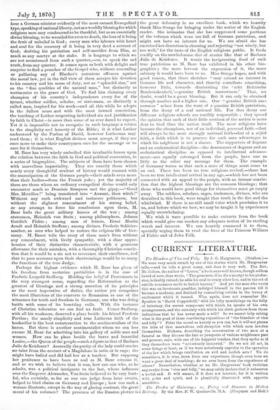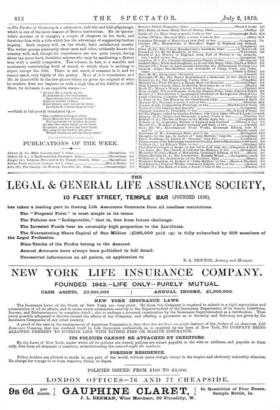— The Pardon of Guincamp is a celebration, half-fair and half-pilgrimage,
which is one of the most famous of Breton institutions. Mr. de Quette- ville's account of it occupies a couple of chapters in his book, and furnishes him with a title which has the advantage of suggesting further inquiry. Such inquiry will, on the whole, have satisfactory results. The writer gossips pleasantly about men and cities, evidently knows the country well, and, though his experiences are not quite recent, dating about ten years back, furnishes anyone who may be meditating a Breton tour with a useful companion. The volume, in fact, is a sensible and moderately entertaining book of travel, to which there is nothing to object except the title. There is not much of romance in it, and we cannot speak very highly of the poetry. Most of it is translation, and Mr. de Quetteville in the few places where he gives the original of what he renders does not impress us with a high idea of his fidelity or skill. Here, for instance, is an exquisite stanza :-'-
"An ciel elle a rendu sa vie Et doucement s'est endormie, Sans murmurer contre lea lois. Sinai le sourire s'elace, Ainsi :murk sans laisser de trace, Le chant de l'oiseau dans le bois,"
—which is but poorly translated by,—
She confident falling to sleep Gives Heaven her treasure to keep,
Nor questions its hidden decrees. As dies the sweet smile on her face, So passes, nor leaves the least trace, The song of the bird in the place
Where rustles at eve the beech trees."































 Previous page
Previous page